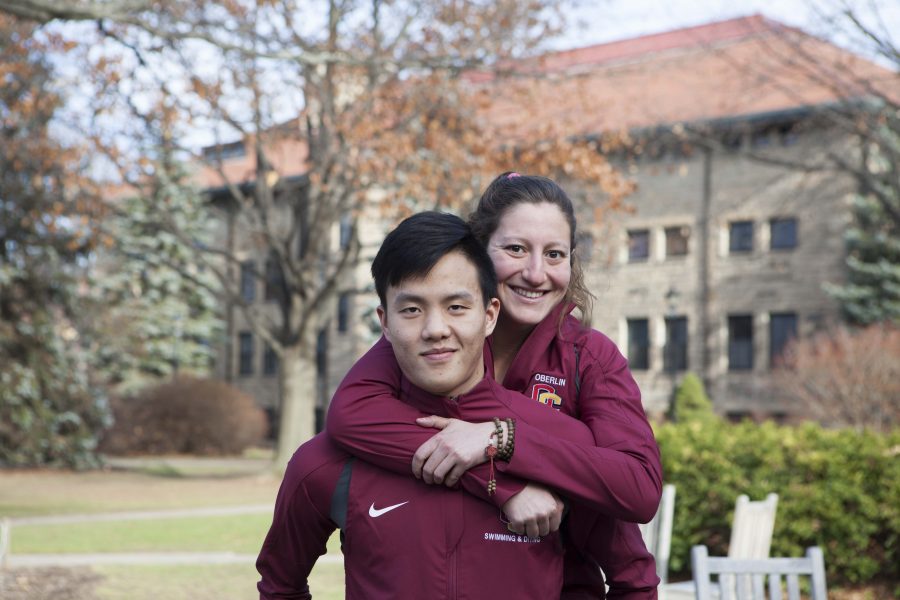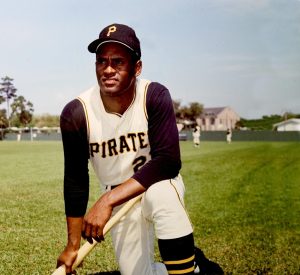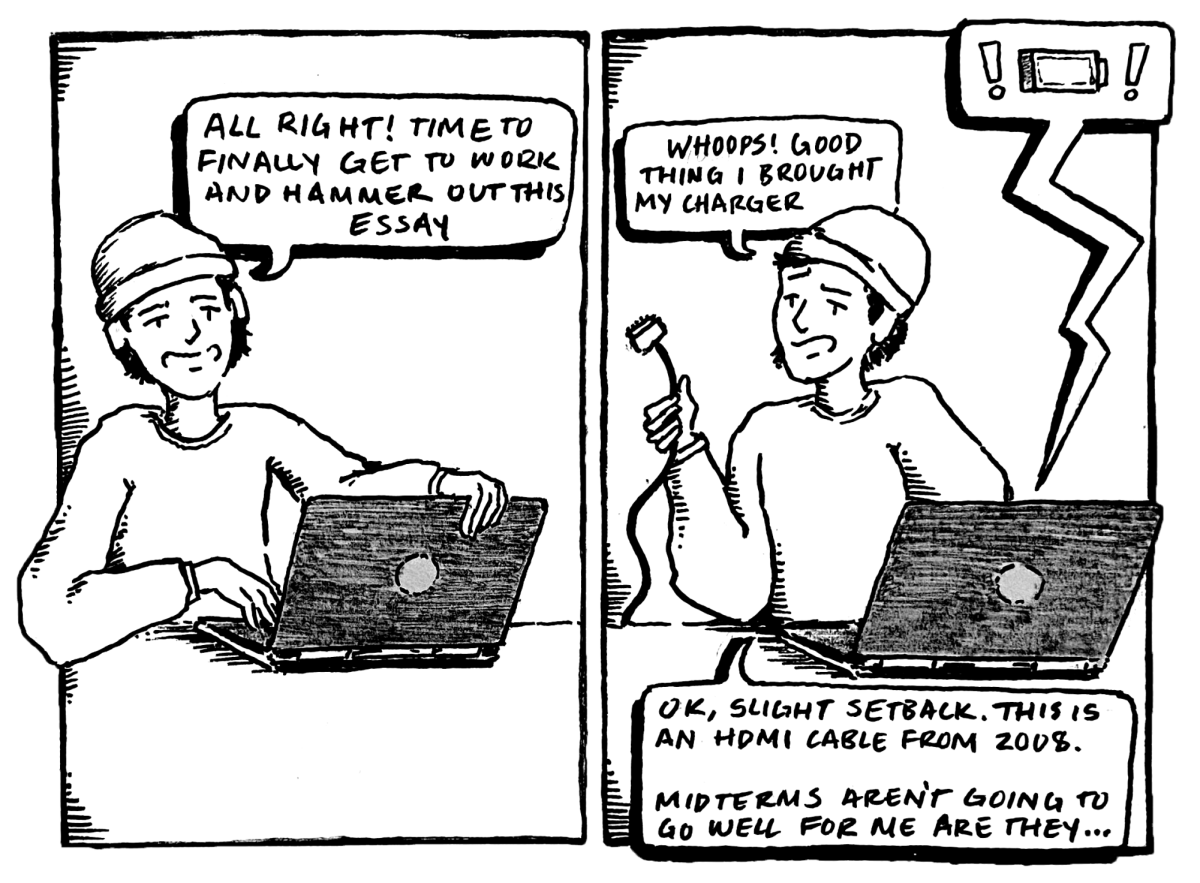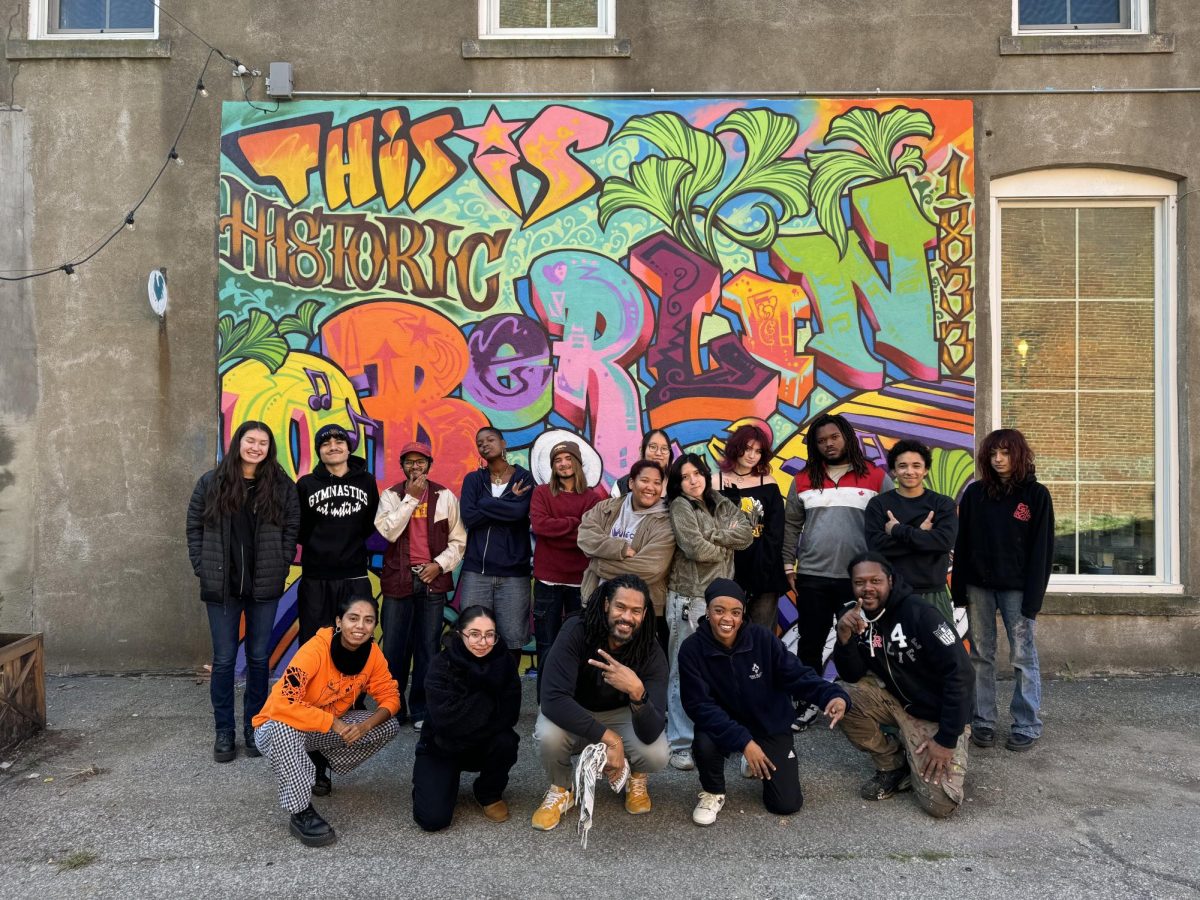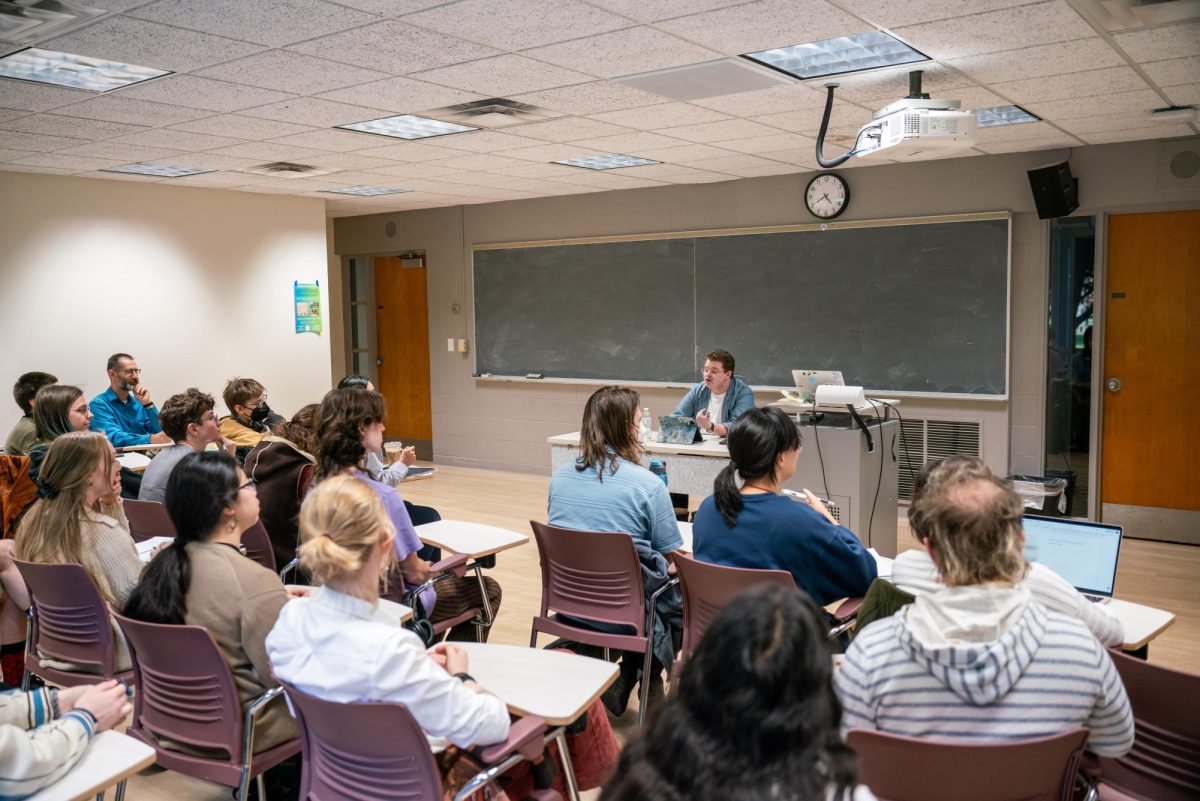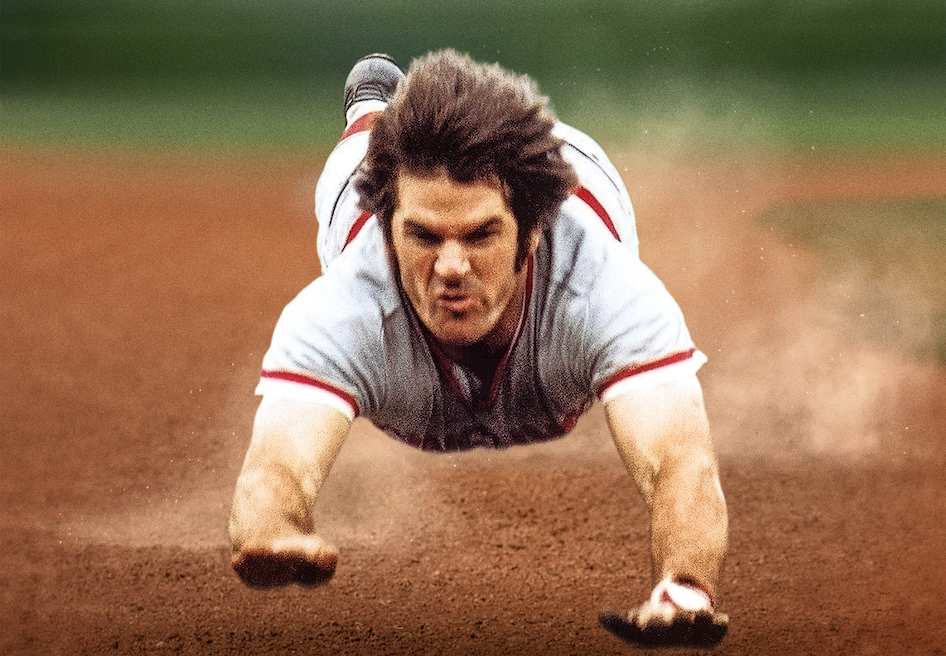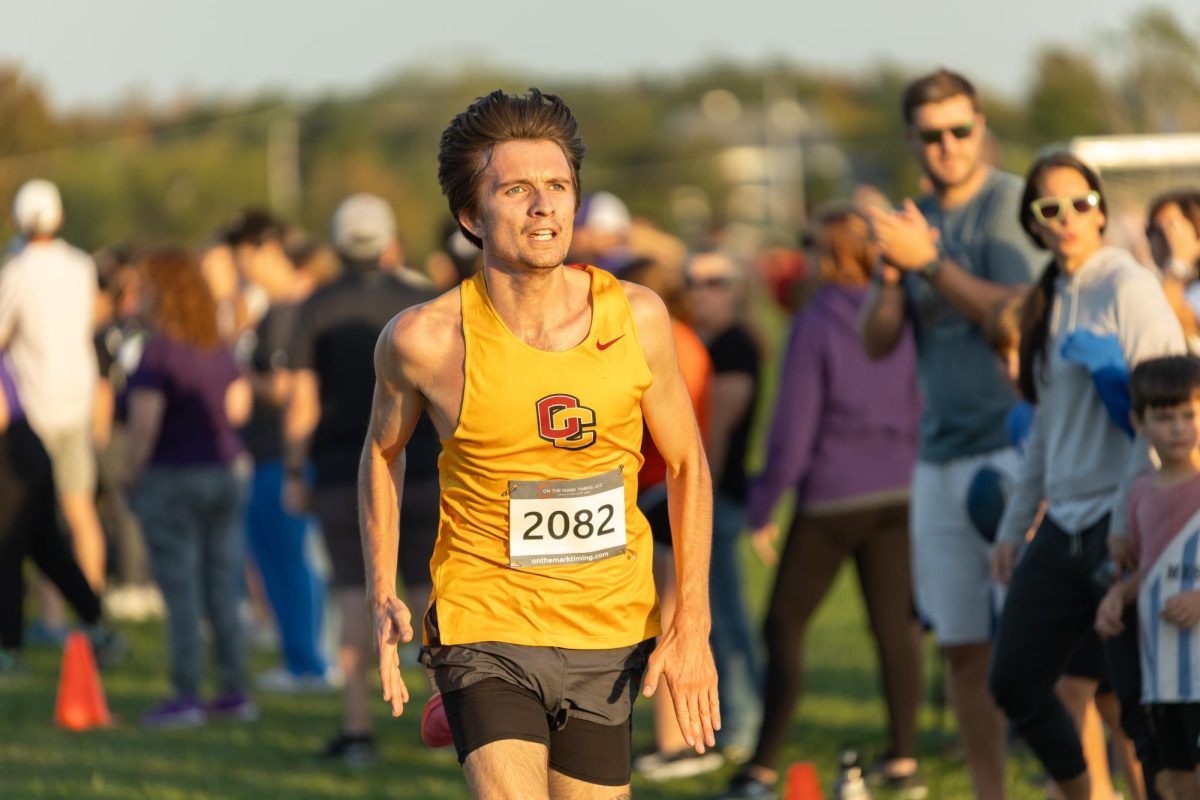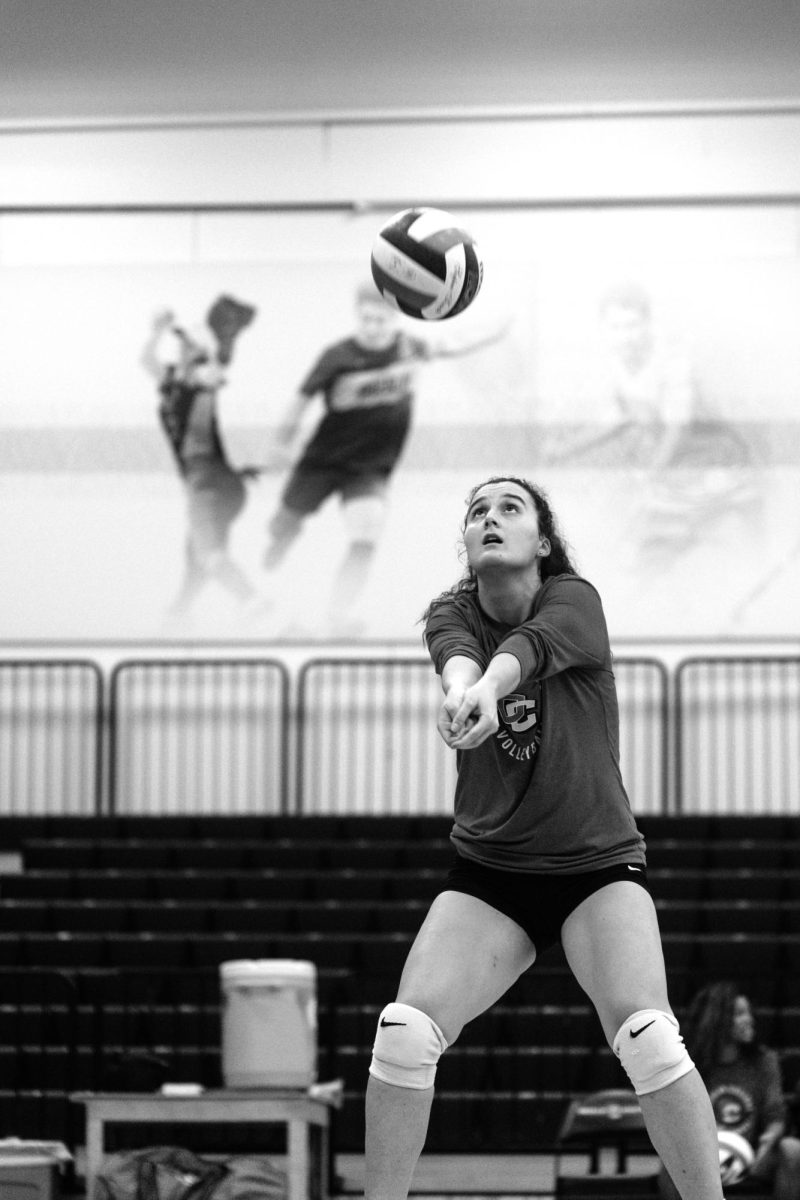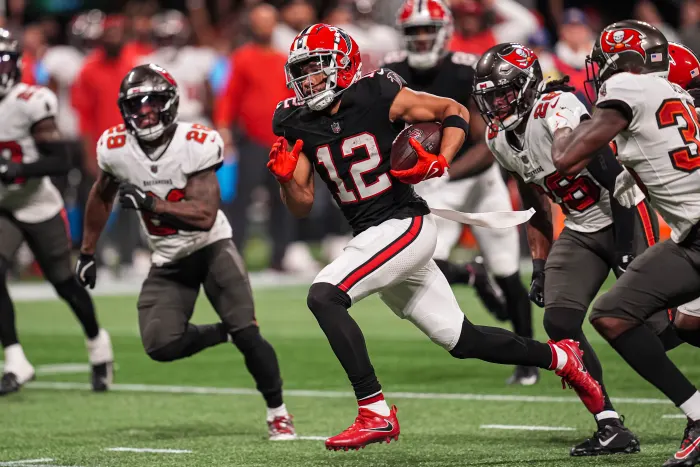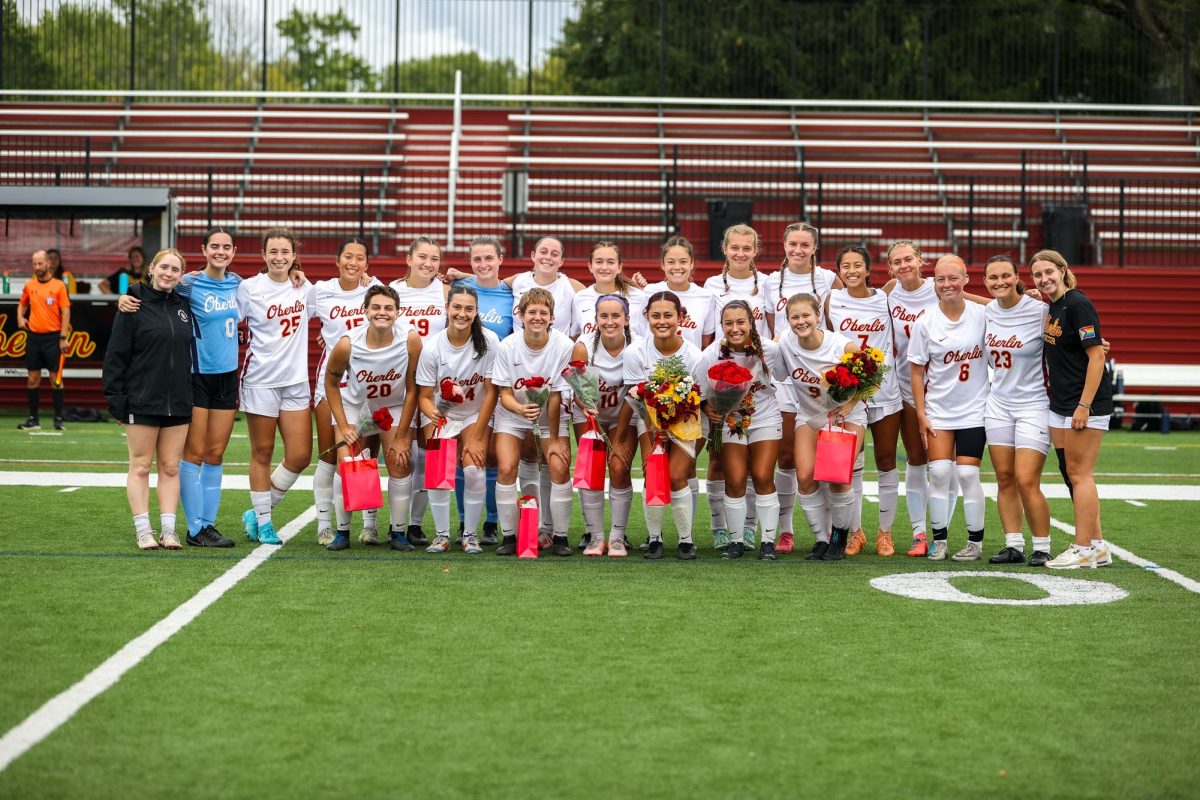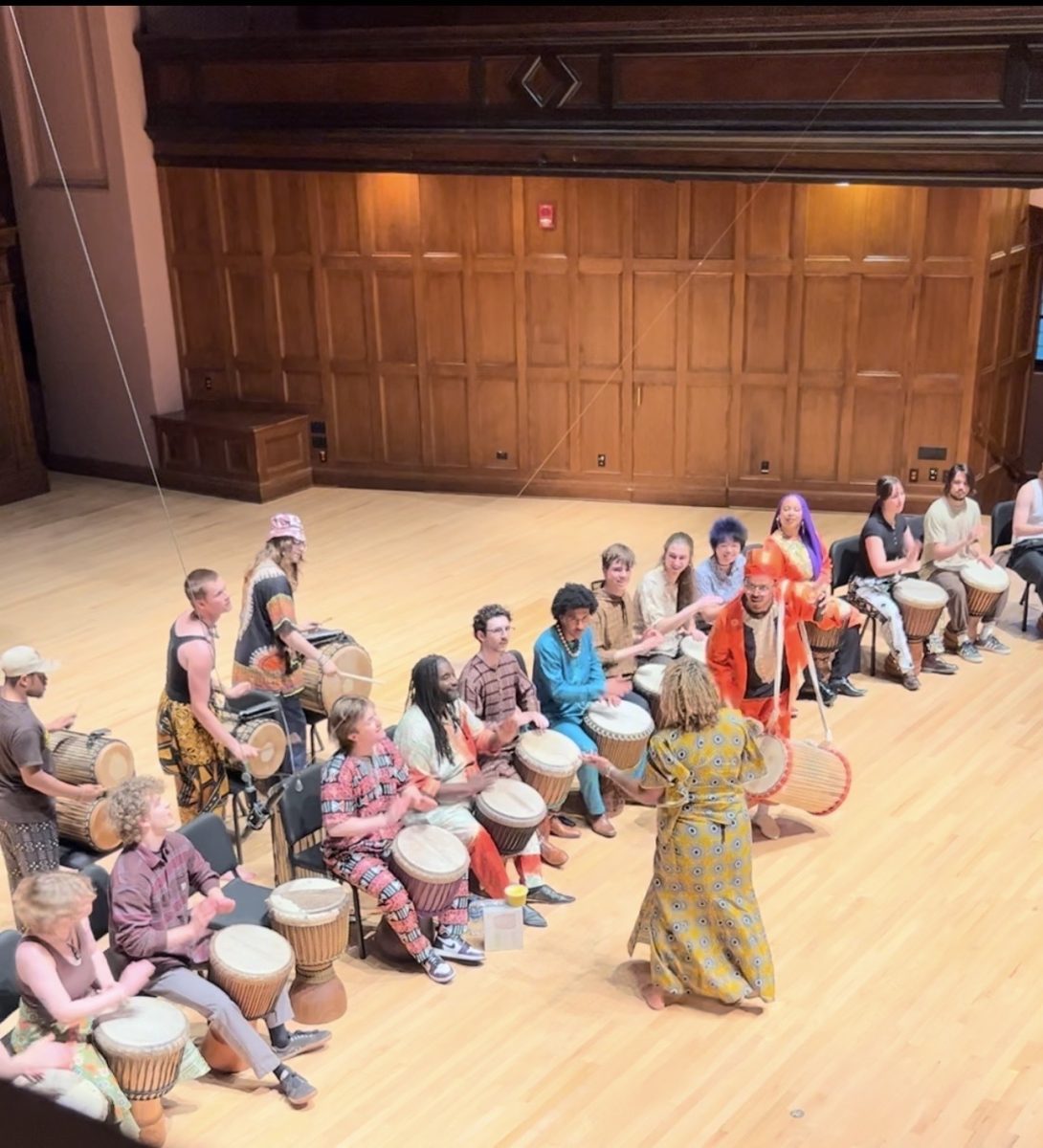In The Locker Room Michael Lin and Devyn Malouf
Michael Lin (left) and Devyn Malouf
December 9, 2016
This week, the Review sat down with first-year swimming and diving team members Devyn Malouf and Michael Lin to discuss their transition to college athletics, team camaraderie and personal improvements they have made throughout the season. In just a few months of college swimming, Malouf and Lin have already notched personal bests and logged top finishes. At Oberlin’s meet against Ohio Northern University on Nov. 12, Lin etched his name in the record books as he logged top-10 all time finishes with a mark of 1:59.73 in the 200-yard individual medley and 55.40 in the 100-yard backstroke.
This interview has been edited for length and clarity.
Q: How did your previous experience in swimming help you be successful at the college level?
Devyn Malouf: I started swimming when I was eight years old on a club team that took me all the way through my middle school and high school years. I had been doing doubles since I was 13, so I have been used to that type of training. So college swimming wasn’t a huge leap. The difference in training styles was the only big adjustment between coaches.
Michael Lin: I’ve been swimming competitively for about 10 years now and I swam for a club that was pretty intense, so it helped me build up my work ethic. I already knew what it was like to work really hard, so that prepared me a lot for college swimming.
Q: What is the difference between college meets and the meets you participated in with your club and high school teams?
DM: The atmosphere is very different in college. At the college level, people really want to be there. They worked really hard to get here. It’s a big time commitment and huge process that we go through. In the competitive setting, everyone is a lot more excited, eager to get better and passionate about it.
ML: The biggest difference between college swimming and my club team is the interaction with the teammates. At a college swim meet, everyone is much more motivated for their teammates and supportive of each other, whereas when I swam before in high school and middle school, all everyone cared about was how they personally did.
Q: What is the camaraderie like on your team?
DM: The camaraderie between the swim teams is awesome. We train together a lot. The team gets really close, especially because we go from practice to dinner and all eat dinner together. We all travel together, so we are all hanging out in the hotel lobby. At meets, we always have people at every lane cheering every race, which I never had at my old club team. The team here is very encouraging and supportive on both sides.
ML: All of the girls and guys, we all feel like brothers and sisters. We are all very close, just as if we were on the same team.
Q: How have you seen yourself improve during your first college season?
DM: Time-wise I’ve improved. I had a lifetime best for the first time in two years, which is awesome. I feel like my training is a lot more consistent and I think that has a lot to do with our [Head Swimming & Diving] Coach Andy [Brabson].
ML: My season has been really great so far. I’ve made more progress in the past two months than I’ve had in the past three years, due to the fact that I’m enjoying swimming a lot more. All of my teammates are very encouraging, and I’m just enjoying that atmosphere a lot more than I did when I was in high school.
Q: How has your relationship been with the coaches?
DM: I have a lot of respect for Andy. I think he knows a lot about swimming. He’s really good with explaining what his sets mean and he’s very encouraging. He lost his voice at the meet [last weekend] because he was screaming so much. Our Assistant Coach Jesse [Gregory] is also great.
ML: Both coaches are great. Andy is a really great guy. He swam the same races in college that I am now, so it’s a lot easier for him and I to talk about race strategy or training.
Q: What are your individual goals for the rest of the season?
DM: My goal for the past two years has been to break two minutes in the 200-meter freestyle. Otherwise, just learning how to swim my races better this season. I’m swimming a lot of races that I’ve never trained for before, so that’s been a learning experience.
ML: My main goal is to improve — drop time. Some secondary goals would be to win a medal at the [NCAC Championships] or qualify for the national championship.
Q: What are your team goals?
DM: I know the women’s team has talked about finishing in the top four of the conference. One of the challenges we face is that we are very small in comparison to a lot of other teams, so while we have a lot of depth, they have more people to put in and score points that way. A lot of our other team goals have been around encouraging each other and providing a really good network of support. That’s something we work on every day in the pool during practice.
ML: I just want my teammates to continue to work hard and push each other. As long as we put in our best effort, then I’ll be satisfied with the results.
Interview by Jackie McDermott, Sports editor


